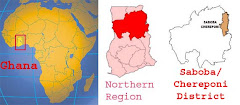It's not very often that you realize you can't define the work that you do. If you asked me what my job was 2 months ago, I could have given you a clear definition of what a lifeguard/swim instructor does. However, if you sat down 11 volunteers about to head overseas and do "development", you be hard pressed to find a common definition of "development".
It wasn't until we tried to define it that I realized just how difficult development actually is. I've gotten into some interesting and somewhat heated discussions about development before, and the common questions are "Are we just Westernizing Africa? If our lifestyle is unsustainable, why are we trying to industrialize Africa? And wouldn't they just be better off without us interfering?"
I'd like to take this opportunity to tell you what development means to me. From the previous post on poverty, development boils down to choice and reducing vulnerability.
Development is a process which enables people to make choices on how they want to live, and reduces vulnerability.
To make this shift into a position where you can make the decisions on how you want to live, people need to have their basic needs met, and enough assets to overcome unexpected obstacles in their way and take advantage of the opportunities available to them. Also, this is a process. I don't believe that there is a destination called "developed", that eventually one reaches.
Now coming back to the recurring theme of whether what we do is changing culture and values overseas. After much discussing, I think it is naive to believe that you are not changing culture in one way or another. Bold statement? Maybe. But any intervention you take is changing behaviour, and arguably culture.
Take sanitation for example. Water borne diseases such as E. Coli, cholera, dysentery, all stem from drinking sources contaminated with fecal matter. As sanitation is such a problem in some developing countries, it would be hard to argue that introducing hand washing in attempts to prevent these diseases would be a bad thing. Looking at hand washing, the very focus of your development project is to invoke a behaviour change among people. And this is anything from farming as a business to preventing HIV/AIDS through condom use.
While it is important to try to minimize changing the local culture, you are influencing people's actions no matter what. How do I feel about this? It's not something I like to give in to. As much as possible, our work MUST be done in a participatory manner and in collaboration with local co-workers, such that the intervention is the least foreign as possible. In an ideal world, all of our interventions and projects should come from the people they are to affect. The rural poor should be requesting interventions that will fill their needs, as they identify them. To me, when the solution comes from the people themselves, you are not being the cause of change, but instead a facilitator of change.
The fact is, we don't live in an ideal world. As it stands, we must be influencing something, otherwise their would be no point of us being there (more on this in a later post). What I'm saying is that sometimes their is knowledge that might not exist within a community, and that is when you can intervene to provide it to them. What is crucial, is that the drive comes from them. For those of you who know me well, I could some this up with my personal favourite buzz word: OWNERSHIP.
To leave you with an unanswered question, and perhaps something to think about in Canada, is the following. Eric Dudley, author of The Critical Villager, perhaps said it best in his small pamphlet Panic. It goes something like this: (paraphrased)
What is the good life? With China and India starting to develop fully we realize that the environment cannot sustain more growth like North America. But aren't the poor entitled to such a wasteful lifestyle? In fact, in their eyes, isn't that what development means? Industrialization? So the question is: if the goal is not sustainable, then what the heck are we doing? In fact, if we don't even know what end we are trying to achieve, then how can we offer directions along the way?
Maybe we are not as developed as we think.
Thursday, February 7, 2008
Subscribe to:
Post Comments (Atom)



No comments:
Post a Comment